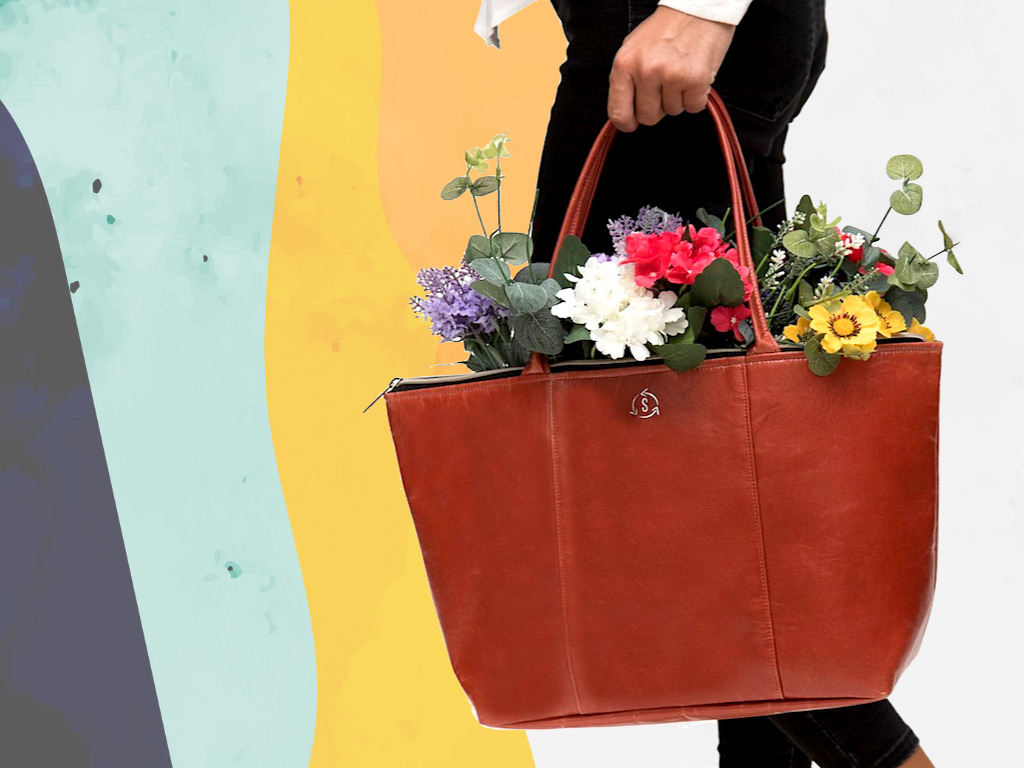Smateria: These Recycled Plastic Vegan Handbags Made By Artisan Khmer Women Help Prevent Carbon Emissions
5 Mins Read
How much does your handbag cost the planet?
Smateria, a Cambodia-based ethical women-founded fashion label, has launched its newest sustainable collection, this time made from a new recycled plastic manufacturing technology. Handmade in-house in their Phnom Penh workshop, which employs local women (they make up 80% of the workforce) and provide mothers with free on-site childcare and opportunities to build professional skills, the new exclusive IKI line takes the brand’s sustainable mission to the next level, transforming what would otherwise be left to pollute the environment into a new, durable, vegan-friendly bags and accessories.
Recycling waste and reducing air pollution
The result of “many years of research and experimentation”, Smateria’s latest collection, IKI, is the brand’s latest sustainable push with all fourteen items in the range made from its unique handmade fabric. From handbags to wallets and pouches, all the accessories in the line are created from an recycled material that undergoes a plastic-fusing method, using up industrial packaging waste that would otherwise be burned – a process releasing harmful toxins into the air.
“That’s what we like most at Smateria, turning waste into something unconventional and of high quality,” said the co-founders.
Each piece, designed with an Italian flair by the female founders of the brand, Jennifer Morellato and Elisa Lion, is then carefully hand-assembled by its team of Khmer artisans based in Phnom Penh. All fourteen pieces from the collection are now available to order online across Asia, Australia and New Zealand via their e-commerce platform, at Smateria’s physical stores and via the brand’s distribution network.
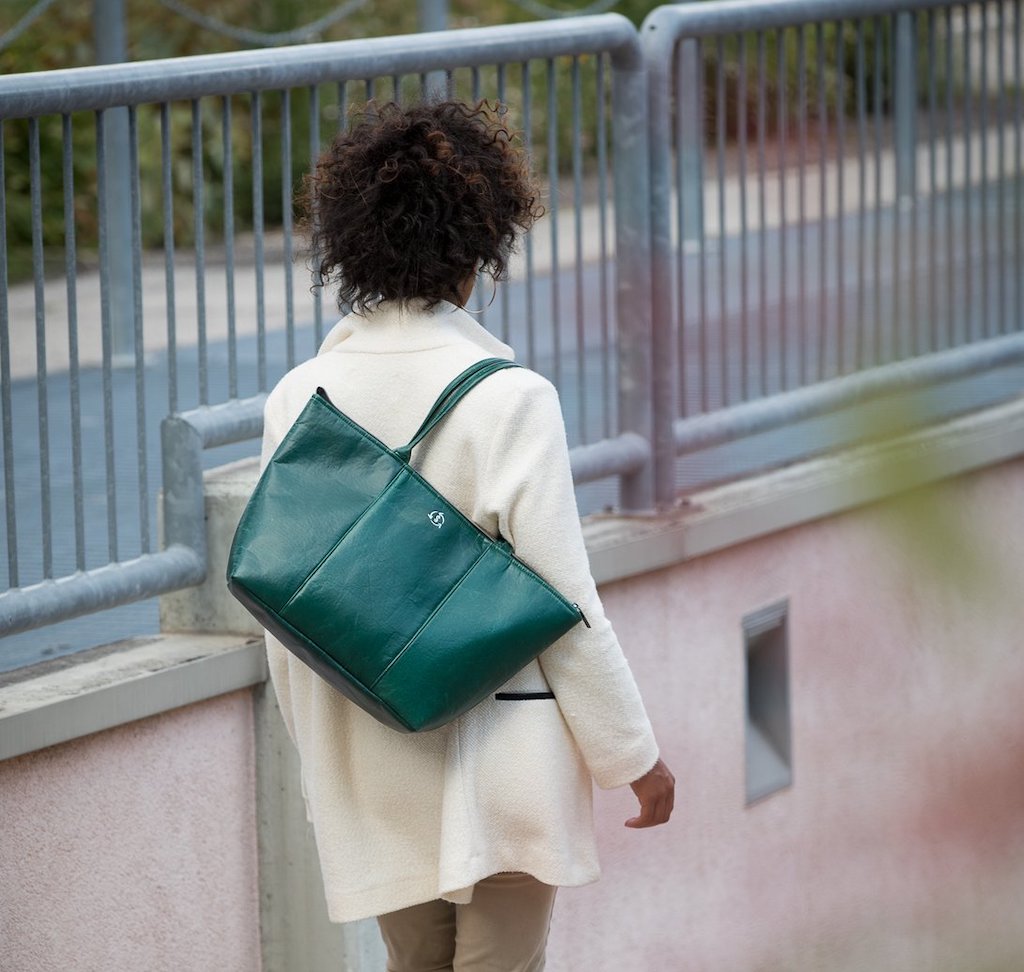
This collection is like no other we have released before. It marks a meaningful turning point toward evermore refined production techniques for making fashion items from recycled plastic.
Elisa Lion, Co-Founder, Smateria
Know your handbag’s carbon emissions
While many brands have touted their products as sustainable to ride the latest trend taking over the fashion industry, Smateria is taking it further to be as transparent as possible with shoppers – each accessory in the collection is fitted with a unique number tag, detailing exactly how much plastic waste was recycled into the product, and the impact it has on the environment.
“This collection is like no other we have released before. It marks a meaningful turning point toward evermore refined production techniques for making fashion items from recycled plastic,” said Lion.
“We are now achieving this on a level of high-quality textures that are water-resistant, incredibly sturdy and smooth to the touch. As Smateria continues to evolve, the value to our customer continues to increase and we’re over the moon about entering this new chapter.”
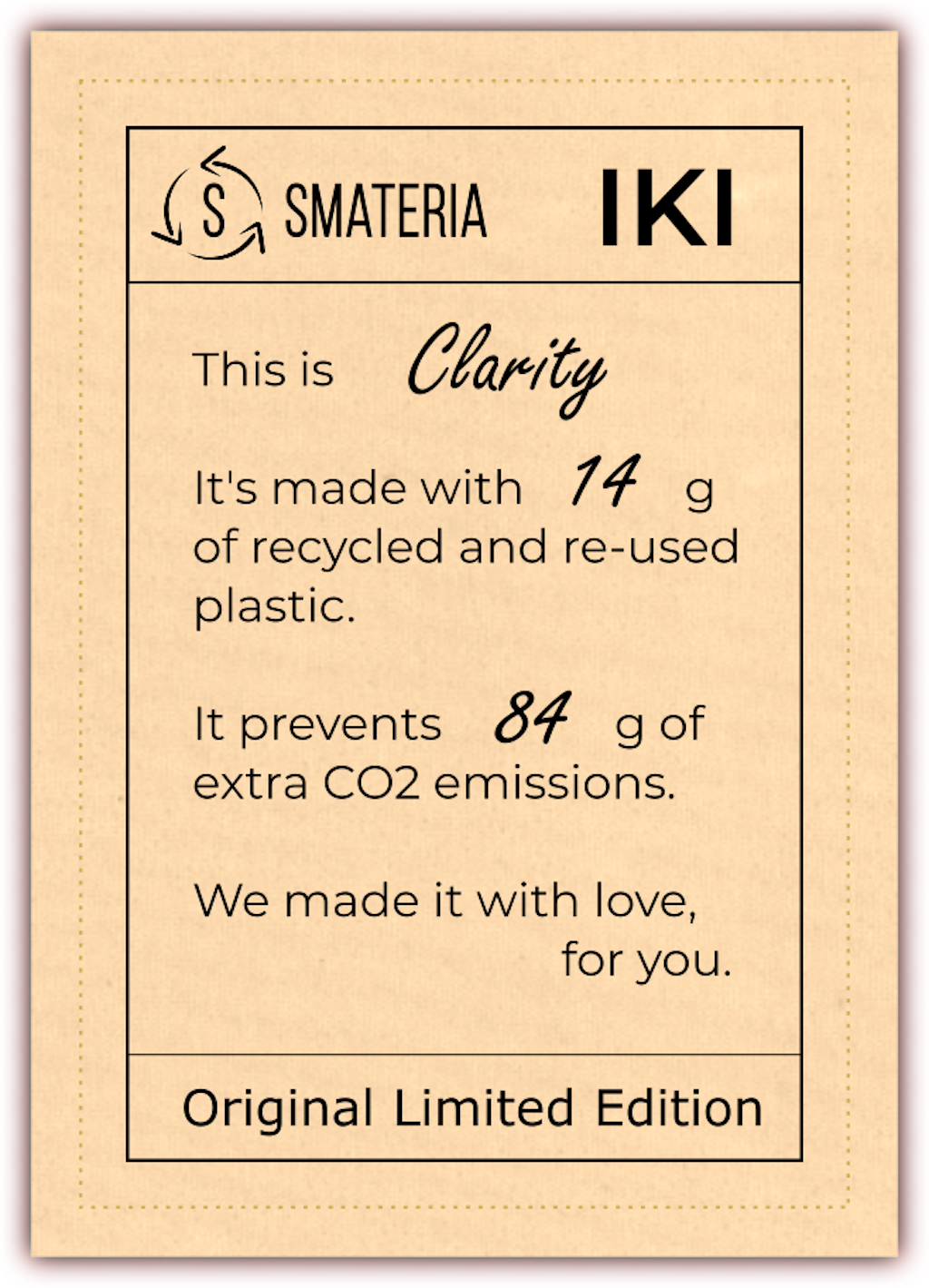
Jennifer Customers value transparency and they want to know what goes into their product.
Jennifer Morellato, Co-Founder, Smateria
Morellato adds that this “special touch” caters to the increasing sophistication that consumers are now showing, as instances of greenwashing have become evermore apparent in the industry.
Together, Morellato and Lion have launched collections made from nylon net commonly used in Cambodia in construction fields, as well as products pieced together using upcycled leftover leather scraps sourced from sofa factories across Cambodia.
“Customers value transparency and they want to know what goes into their product. We’re committed to producing a collection that our customers could clearly see is a noteworthy investment,” she explains.
IKI is only the latest in the brand’s evolution to pioneer sustainable and ethical fashion. Since its inception back in 2006 – when conscious consumerism still remained a niche – the company’s business model has been centred on having a positive impact on the planet and people.
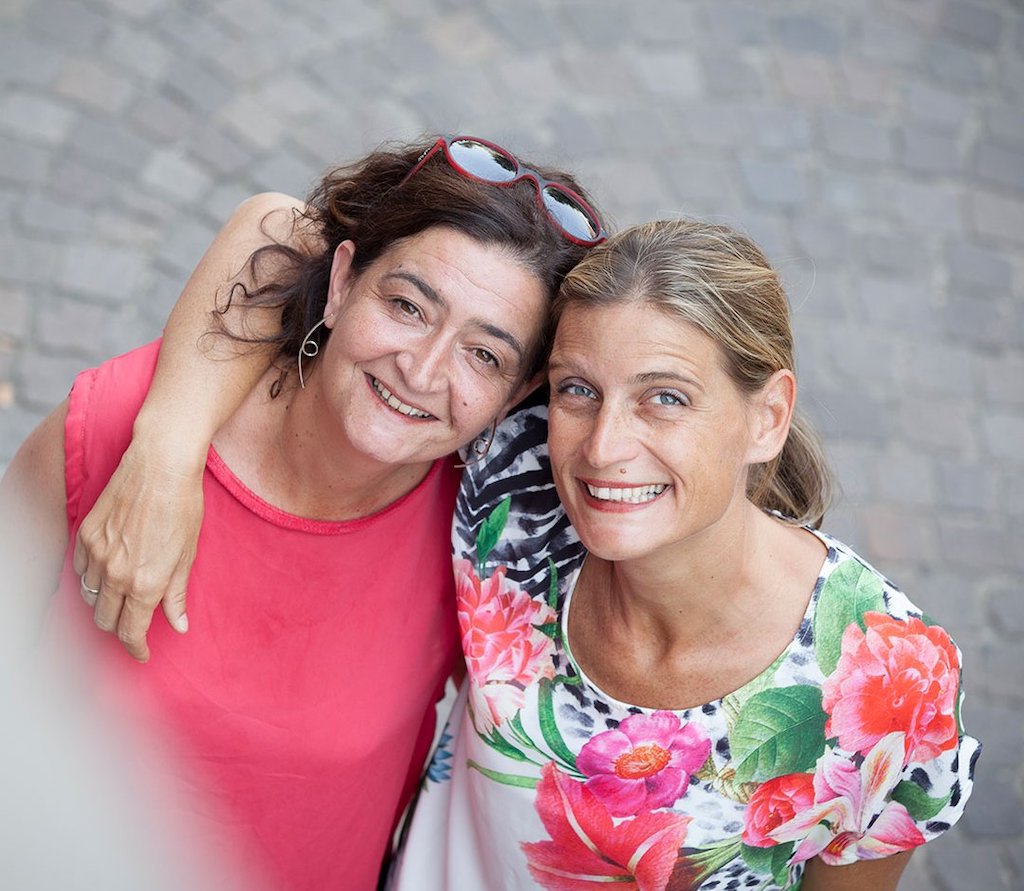
What an ethical supply chain actually looks like
Smateria’s ethical values shine through the most in its operations, which is a drastic contrast to the often harsh and unsafe conditions that many Cambodian garment workers face – an issue that has garnered greater global attention in recent months amid the coronavirus pandemic, which have left many already vulnerable workers without incomes due to forced closures.
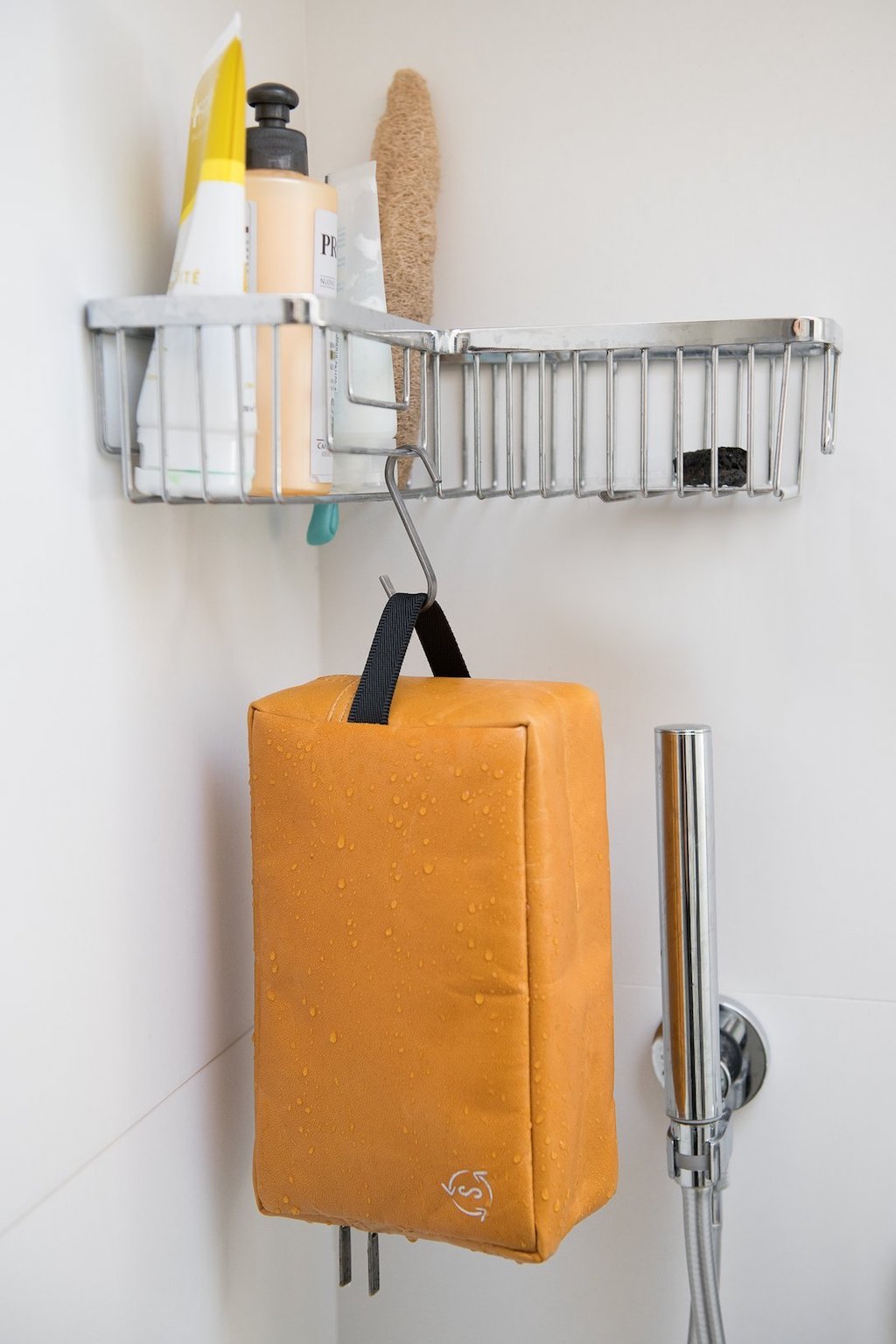
“We have our own micro-factory which allows us to control the production process and conditions, to never compromise on quality and to provide decent human working conditions,” explains Morellato and Lion.
As a women-led business, the company not only offers decent working hours capped at a 8-hour workday in a 5-day working week, competitive wages, double maternity benefits and family support leaves, they also offer their 80% female workforce free childcare and education at its on-site preschool.
Employees also benefit from professional development, from training for production managers and pattern makers to English lessons and even Chinese classes for sales teams.
“We challenge the glass ceiling by ensuring all our staff have equal opportunities to grow and develop within their roles,” says the company. “Today, Smateria is a thriving ethical brand and we are proud of our journey.”
All images courtesy of Smateria.
This is a Green Queen Media partner post.


